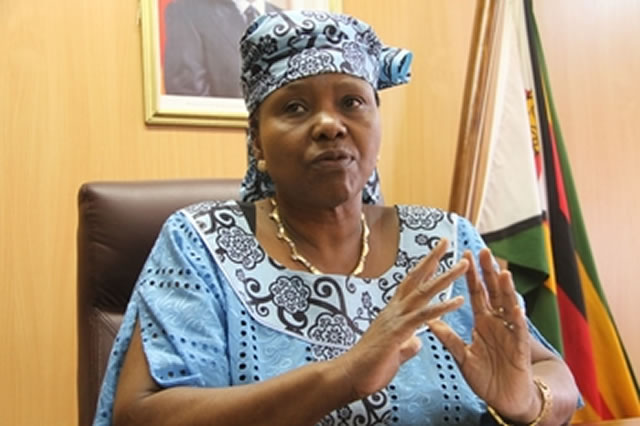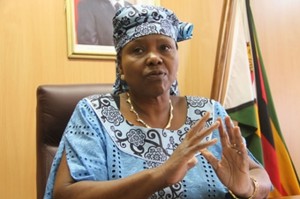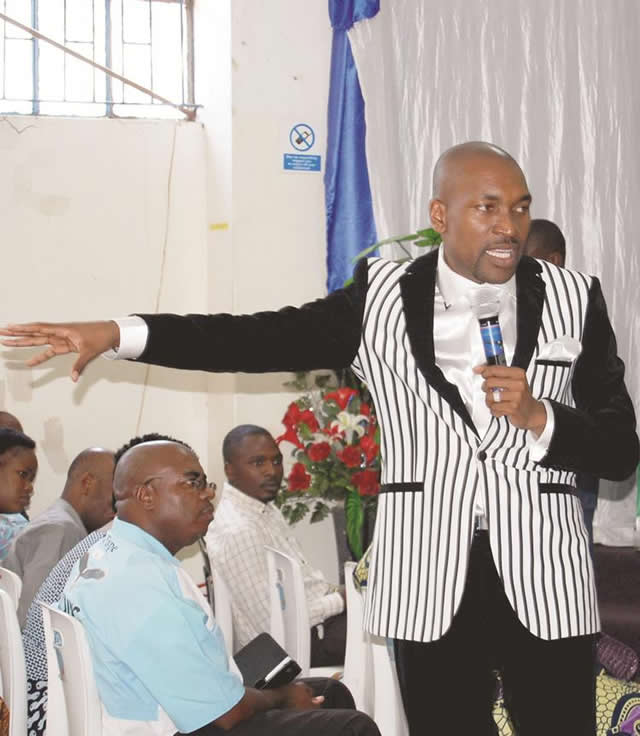Are churches safe havens for women?

Vaidah Mashangwa
With the manner in which the man of the cloth Robert Gumbura conducted himself amidst his congregants one wonders whether women in general are safe in the various churches they attend. Maybe due to cultural tendencies that encourage subordination and subservience in women, at times women tend to suffer in silence. It seems it takes only the brave ones to break the silence.
In almost all churches, the pastor, reverend, priest or bishop has always been envisaged as a father figure who is supposed to look after the flock be it in sickness or in health and to ensure that his words convert the sinners. The leader of the church is then supposed to be a role model with good interrelationships with the congregants both male and female so that respect is maintained throughout the life history of a church. No wonder why the Honourable Minister of Women Affairs, Gender and Community Development Cde OCZ Muchinguri and other activists felt that Gumbura’s sentence was rather lenient.
There is every reason for even a lame man to expect that those who have a calling or trained in the values supported by religion would behave differently both within and outside the church. It is also common knowledge that religious people would have the attitudes, values, beliefs and expectations internalised as guidelines for themselves that would mould their character and make their lives and marriages a success.
Church leadership in general is supposed to provide wise counsel from the pulpit as well as in the private and public spheres and giving social and moral support to the congregation. The moral-religious system is supposed to be the strongest restraint against sex outside marriage, adultery, fornication and other ills including adherence to the Ten Commandments. If our church leaders are then convicted of rape, what then should an ordinary man be convicted of?
If everyone including some church leaders could live up to the ideals of religion and Christianity, there could be no problems in our society and the churches. In the case of Gumbura, the ideals were neither well taught nor acted as nothing good can be copied or admired from his character.
Some churches strive to bring up children of upright morality, to ensure that women assist each other in every way possible and to encourage unity of purpose among its followers, on the other hand we have leaders who are selfish and greedy to the extent of raping women. The church should have an impact on family relationships, life itself and should shape the destiny of its believers.
Most believers have a deep appreciation and respect of their church leaders and it is only prudent for the church leaders also to be exemplary and strive to make people better socially, morally, spiritually, economically and politically. A good church should have measurable indices of religious influence. If no indices are recorded then it is a clear indication of the failure of that particular church to making better people.
Of course there is no way a 100 percent success index can be recorded but surely Gumbura’s case has left untold suffering to the rape victims. Measurable success indices should be higher for those with religious connections or bearings than those without.
No wonder why feminist theories of religion follow Marxist theories by arguing that religion can be an instrument of domination and oppression of women. They see religion as serving the interest of men rather than that of women. One author Christian Giddens argues that Christian religion is a resolutely male affair in its symbolism as well as its hierarchy. Women are portrayed as having been created from a rib taken from a man as such some women are sexually, physically and economically abused even at church and by husbands who go to church.
Issues of domestic violence seem to be sacred when it comes to church level yet even at church or after church women are abused day and night.
Karen Armstrong argues that none of the major religions have been particularly good to women and women have been relegated to a marginal position. Women play a significant role and participate more in organised religion but their overall gains and recognition is not much.
Bearing this in mind feminists have continued to question why women came to be subservient within most religions (to the extent of keeping quiet when abused). They have also questioned how religion has been used to cement patriarchal power. According to a church census conducted in 2005 among the main churches or denominations, 57 percent were women yet women continue to be used as sex objects in some churches.
Actually in the book, Sociology, Themes and Perspectives, 84 percent of women believe in God compared to 64 percent of men and 57 percent of women and 39 percent men believed in life after death. The figures show how women are committed to serving God and hence their faith should not be dampened by greedy men who instead of preparing them for eternal life go on to abuse them.
The religiosity of women is also coupled by differential socialisation which perceives women as more submissive, passive, obedient, nurturing, less confrontational, more cooperative and caring than men. Actually men have exercised their control over most religious groupings for example until recently in Zimbabwe women can be pastors in some churches. In China women are associated with Yin and men with Yang yet Yang spirits are more important and powerful. In Buddhism both men and women can be monks and nuns yet monks are seen as senior to nuns. In Orthodox Judaism only males are allowed to take full part in ceremonies. In Islam in some regions women are not allowed to enter mosques.
While this might have been prescribed by history there is need to respect the role played by women in both the private and public spheres as carers,’ mothers, sisters, wives and grandmothers. Let us give them the dignity they deserve.
- The writer is Vaidah Mashangwa Provincial Development Officer Ministry of Women Affairs, Gender and Community Development Bulawayo. She can be contacted on 0772111592 or email [email protected]









Comments